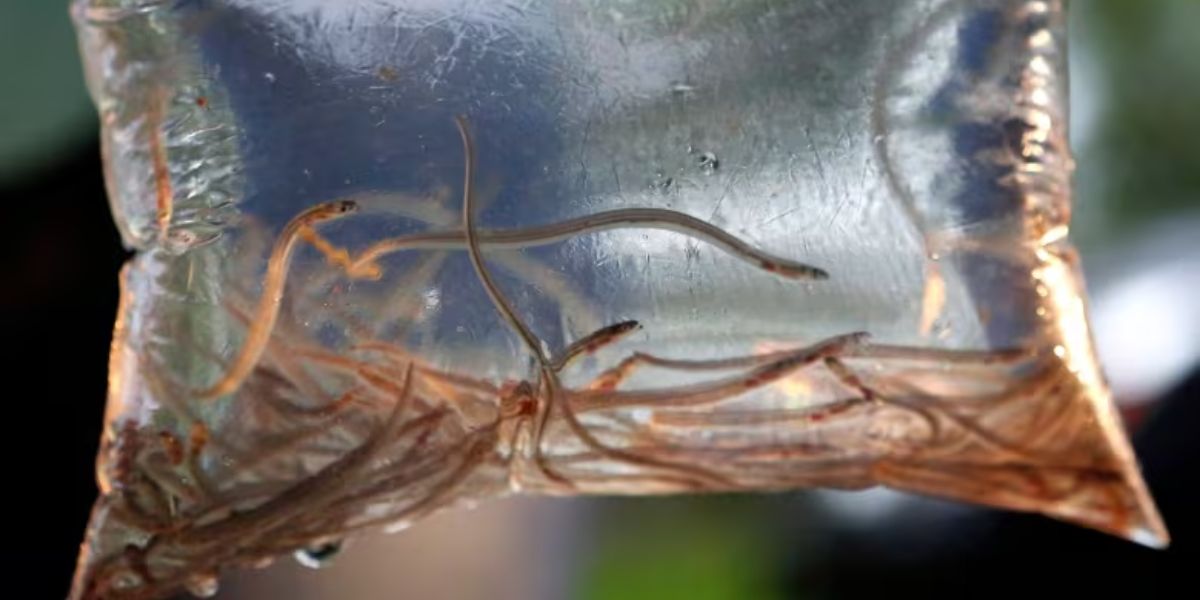Maine Residents Caught in Canada Over Elver Poaching Charges
Five Maine residents were arrested in Nova Scotia last week for illegally hunting juvenile eels, or elvers, according to Canadian officials.
Fisheries and Oceans Canada, the department that controls commercial fishing in the country, did not publish the Mainers’ names in its announcement.
On Monday, the agency did not respond to demands for additional information.
Elvers, which are worth hundreds of dollars per pound, are taken during their spring migration from the oceans to freshwater upstream. Maine’s closely regulated elver fishery generates around $20 million in revenue for licensed fishermen each year.
According to the release, Canadian law enforcement personnel were patrolling near the Meteghan River in southwestern Nova Scotia when they discovered the group of accused poachers.
“During these arrests, officers seized 3.448 kilograms [7.6 pounds] of elvers, one vehicle, three dip nets, and one fyke net,” the FBI stated in a statement. “In addition, and not related to the individuals arrested during this patrol, officers seized another 13 kilograms [28.6 pounds] of elvers and various other fishing gear, from the same location.”
According to state officials, the average price paid this spring for elvers legitimately collected in Maine was $1,139 per pound, making this week’s seizure in Nova Scotia worth more than $41,000, or more than $56,000 in Canadian currency. Maine’s yearly elver fishery is limited to 9,600 pounds.
The great majority of baby eels collected in the United States and Canada are transported live to Asia and reared to adulthood in aquaculture ponds before being harvested for the worldwide fish market.
According to Canadian news organizations, this spring’s elver fishery in New Brunswick and Nova Scotia has been unpredictable.
Authorities have made 95 arrests and seized 21 vehicles, 233 fishing nets, and more than 160 pounds of elvers, according to the CBC. According to the CBC, federal officials closed the fishery in early March due to “surges” in poaching that raised conservation concerns and resulted in at least one violent incident.
Maine, which has the sole substantial eel fishery in the United States, has also faced with poaching since demand for eels skyrocketed in the early 2010s when Europe restricted their exports due to diminishing eel populations.
However, after Maine and U.S. officials cracked down on poaching and established tough elver fishing laws in 2014, reports of poaching in Maine have significantly decreased.











